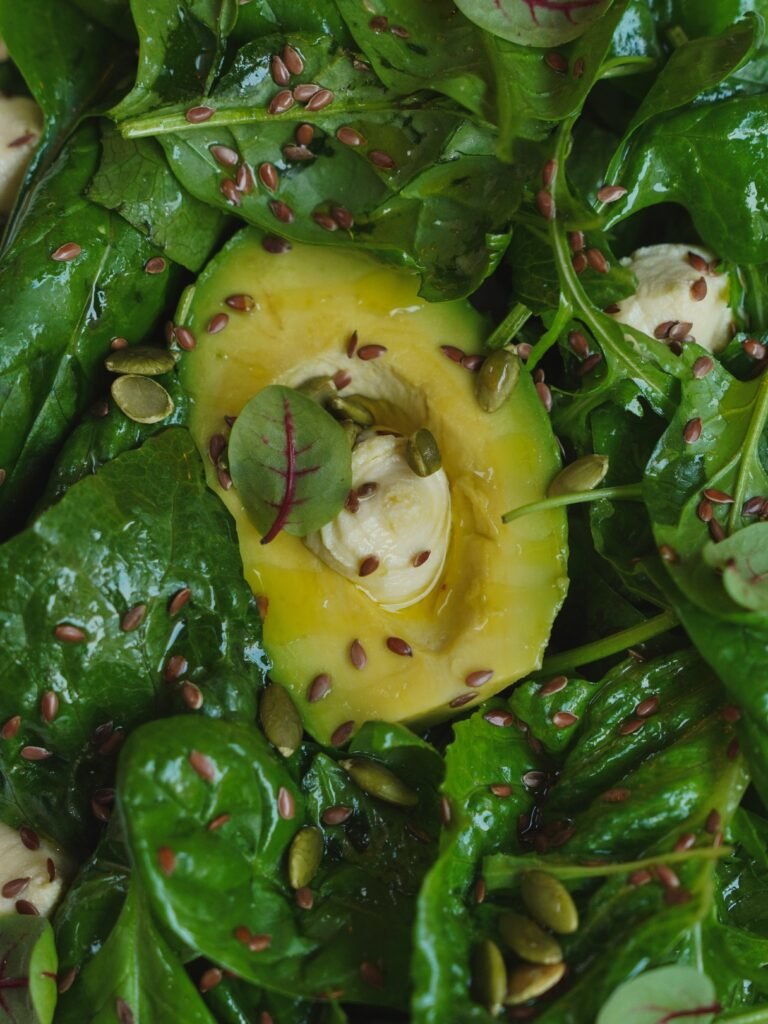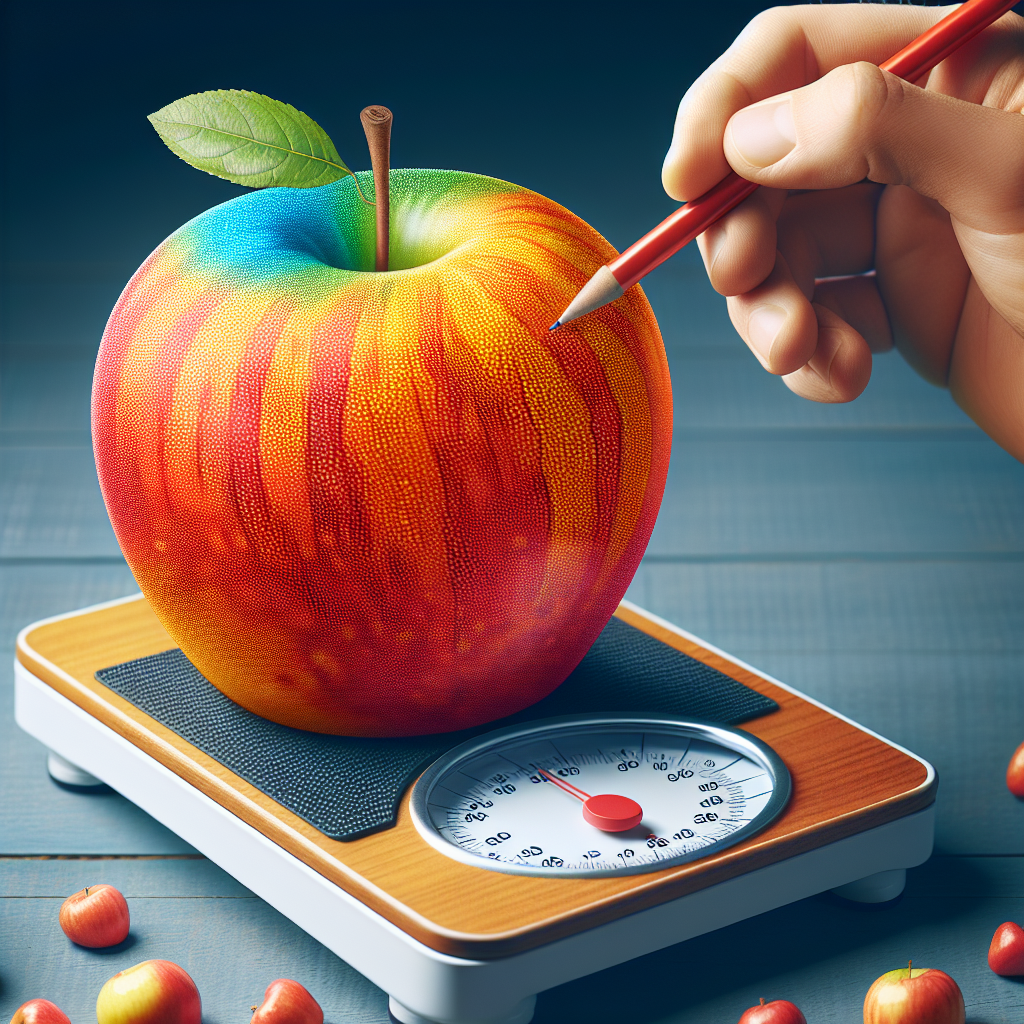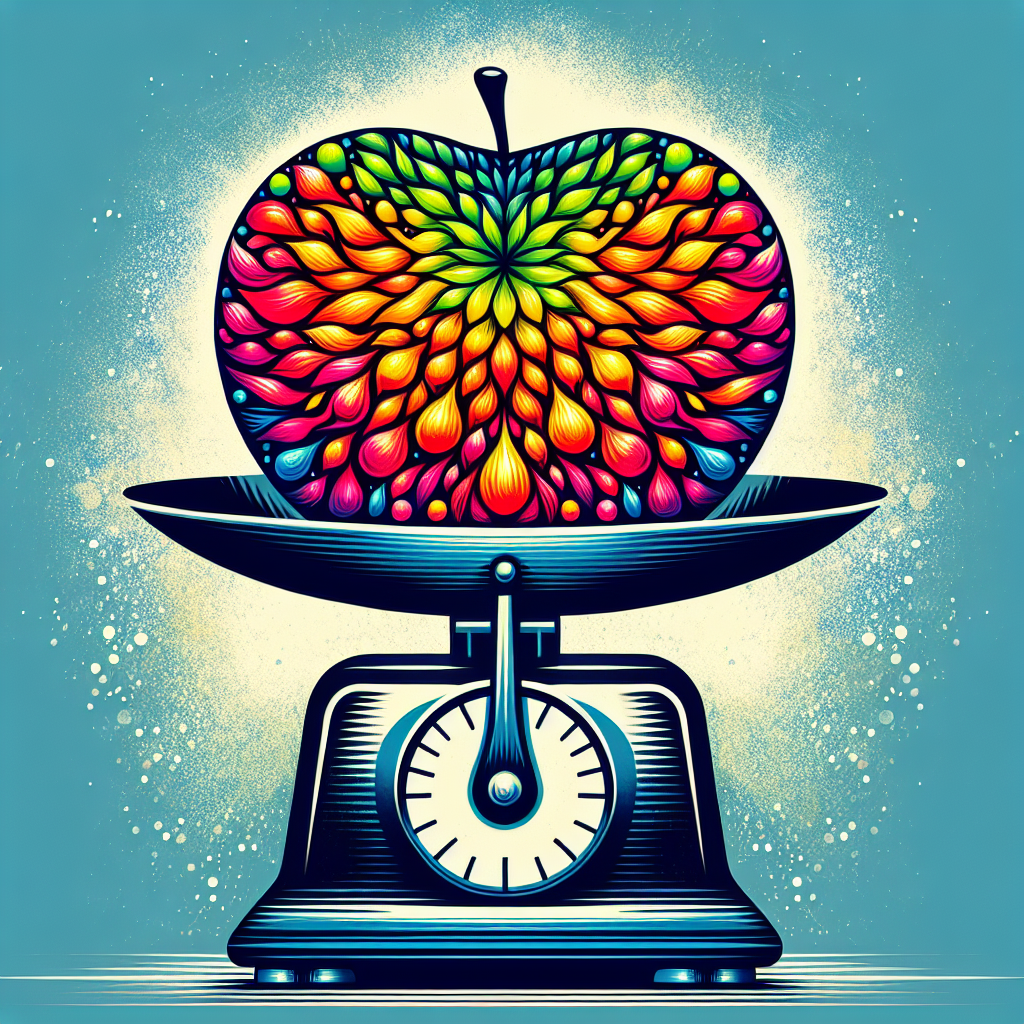Are you looking for a natural way to manage your diabetes? Look no further than the impact that fruits and vegetables can have on your health. Not only are these nutrient-rich foods delicious, but they also play a vital role in helping you control your blood sugar levels. In this article, we will explore how incorporating fruits and vegetables into your diet can make a significant difference in managing your diabetes. So, get ready to discover the power of these wholesome foods in maintaining a balanced and healthy life.
Benefits of fruits for diabetes management
Fiber content in fruits
Including fruits in your diabetes management plan can have numerous benefits. One of the key advantages is the high fiber content found in fruits. Fiber is essential for people with diabetes as it helps regulate blood sugar levels. When you consume fruits rich in fiber, it slows down the rate at which sugar is absorbed into the bloodstream. This can prevent spikes in blood sugar levels and help maintain stable glucose levels throughout the day.
Low glycemic index fruits
Another advantage of incorporating fruits into your diabetes management is their low glycemic index (GI). The glycemic index measures how quickly a particular food can raise blood sugar levels. Fruits with a low GI, such as berries, cherries, and apples, are slowly digested and absorbed, leading to a gradual and steady increase in blood sugar levels. By choosing fruits with a low GI, you can better control your blood sugar and reduce the risk of sudden spikes or crashes.
Antioxidants and vitamins
Fruits are not only delicious but also packed with essential nutrients, vitamins, and antioxidants. These nutrients play a vital role in overall health and can benefit individuals with diabetes. Antioxidants help protect your body’s cells from damage caused by harmful free radicals. This can be particularly important for people with diabetes, as high blood sugar levels can increase oxidative stress. By consuming fruits rich in antioxidants, such as berries and citrus fruits, you can support your body’s defense against oxidative damage.
Hydration and weight management
Maintaining hydration is crucial for anyone, but it holds particular importance for individuals managing diabetes. Certain fruits, such as watermelon, grapes, and oranges, have high water content. Incorporating these hydrating fruits into your diet can help you stay well-hydrated, contributing to overall health and diabetes management. Additionally, many fruits are low in calories and can be a valuable addition to your weight management efforts. Choosing fruits as a healthy snack can help satisfy your cravings while keeping your caloric intake in check.
Recommended fruits for diabetes management
Berries
Berries, including strawberries, blueberries, and raspberries, are excellent choices for individuals with diabetes. These vibrant and flavorful fruits are packed with fiber and antioxidants, making them an ideal addition to your diabetes-friendly diet. The high fiber content in berries helps regulate blood sugar levels and promotes digestive health. Furthermore, berries are relatively low in carbohydrates and calories, making them a guilt-free and delicious treat.
Citrus fruits
Citrus fruits, such as oranges, lemons, and grapefruits, are not only refreshing but also beneficial for diabetes management. These fruits are rich in vitamin C, which can support your immune system and reduce inflammation. Additionally, citrus fruits are low in calories and high in fiber, making them a smart choice for individuals looking to control their blood sugar levels. Enjoy citrus fruits as a snack or add them to your salads and smoothies for an extra punch of flavor and nutrition.
Apples
The old saying “an apple a day keeps the doctor away” holds true for individuals managing diabetes. Apples are not only tasty but also rich in fiber and antioxidants. The fiber in apples helps slow down the release of sugar into the bloodstream, preventing sudden spikes in blood sugar levels. Furthermore, apples contain polyphenols, which are antioxidants that have been associated with improved blood sugar control. With countless varieties to choose from, apples make for a versatile and convenient snack for individuals with diabetes.
Pears
Pears are a versatile fruit that can be enjoyed fresh or incorporated into various recipes. They are an excellent choice for individuals with diabetes due to their high fiber content and low glycemic index. The fiber in pears helps regulate blood sugar levels and promotes digestive health. Pears also contain vitamins and antioxidants that can contribute to overall well-being. Whether enjoyed on their own or added to salads and desserts, pears are a delicious and nutritious addition to a diabetes-friendly diet.

Risks and considerations when consuming fruits for diabetes management
High sugar content in some fruits
While fruits can be beneficial for individuals with diabetes, it’s essential to be mindful of the sugar content in certain fruits. Some fruits, such as bananas, grapes, and mangoes, have a higher sugar content compared to others. While the sugar in fruits is natural and accompanied by beneficial fiber, it can still impact blood sugar levels. It’s important to moderate your portion sizes and consider including these higher sugar fruits in balanced meals.
Portion control
While fruits offer numerous health benefits, it’s important to practice portion control, especially for individuals with diabetes. Consuming large quantities of fruit in one sitting can lead to a sudden increase in blood sugar levels. Therefore, it’s advisable to monitor portion sizes and spread your fruit intake throughout the day to avoid any adverse effects on your blood sugar levels. Consulting with a registered dietitian can help you determine appropriate serving sizes based on your individual needs.
Individual tolerance and blood sugar response
Each individual may have a different tolerance and response to different fruits. While some fruits may cause a significant increase in blood sugar levels for one person, they may have a minimal impact on another. It’s important to monitor your blood sugar levels and pay attention to how different fruits affect your body. Regular blood glucose monitoring combined with self-awareness can help you identify which fruits work best for you and your diabetes management plan.
Fruit juices vs whole fruits
When it comes to fruit consumption, it’s generally recommended to opt for whole fruits rather than fruit juices. Whole fruits contain beneficial fiber, which slows down the absorption of sugar into the bloodstream. Fruit juices, on the other hand, often have a higher glycemic index and can lead to a rapid increase in blood sugar levels. Additionally, fruit juices are often stripped of the beneficial fiber found in the whole fruit. If you do choose to consume fruit juices, be sure to select those that are 100% juice and moderate your portion sizes.
Benefits of vegetables for diabetes management
Rich in fiber
Vegetables are an essential component of a diabetes-friendly diet due to their high fiber content. Fiber is crucial for individuals with diabetes as it helps regulate blood sugar levels and contributes to overall digestive health. By including a variety of vegetables in your meals, you can increase your fiber intake, promote satiety, and stabilize your blood sugar levels.
Low in calories
Vegetables are naturally low in calories, making them an excellent choice for weight management and diabetes control. Incorporating a generous amount of vegetables into your meals can help you feel fuller for longer, reducing the temptation to indulge in high-calorie foods. Additionally, their low-calorie content makes them a guilt-free option that can be enjoyed in large quantities.
High in essential nutrients
Vegetables are not only low in calories but also packed with essential nutrients. They contain a wide range of vitamins, minerals, and antioxidants that contribute to overall health and well-being. Specific nutrients found in vegetables, such as vitamin C and magnesium, can have a positive impact on blood sugar control and insulin sensitivity. By including a variety of vegetables in your diet, you can ensure you’re getting a broad spectrum of beneficial nutrients.

Recommended vegetables for diabetes management
Leafy greens
Leafy greens, such as spinach, kale, and collard greens, are nutritional powerhouses that should be a staple in any diabetes management plan. These greens are incredibly low in calories and carbohydrates while being rich in fiber and essential nutrients. Leafy greens also have a low glycemic index, meaning they have minimal impact on blood sugar levels. Incorporating leafy greens into your meals can boost your nutrient intake and support your overall health.
Cruciferous vegetables
Cruciferous vegetables, including broccoli, cauliflower, and Brussels sprouts, offer a plethora of health benefits. These vegetables are low in calories and carbs while being high in fiber and essential vitamins. They also contain compounds that have been shown to have potential anti-inflammatory and blood sugar-lowering effects. Incorporating cruciferous vegetables into your meals can provide a nutritious and flavorful addition to your diabetes management plan.
Bell peppers
Bell peppers come in various vibrant colors and can add a delicious crunch to your meals. These vegetables are packed with vitamins A and C, as well as fiber. Bell peppers have a low glycemic index and are relatively low in calories, making them an excellent choice for individuals with diabetes. Whether added to salads, stir-fries, or stuffed with other ingredients, bell peppers can enhance the flavor and nutritional value of your meals.
Tomatoes
Tomatoes are not only delicious but also rich in nutrients that can benefit individuals with diabetes. They are low in calories and carbs while being high in vitamins A and C, as well as lycopene, an antioxidant known for its potential to reduce inflammation. Tomatoes can be enjoyed in various forms, including fresh, cooked, or in sauces, providing versatility and flavor to your diabetes-friendly meals.
Carrots
Carrots are a sweet and crunchy vegetable that can be enjoyed raw or cooked. They are low in calories and have a low glycemic index, making them an ideal choice for individuals with diabetes. Carrots are loaded with beta-carotene, a compound that your body converts into vitamin A. They also provide a good amount of fiber, supporting digestive health and blood sugar control. Incorporating carrots into your meals or enjoying them as a snack can add a burst of flavor and essential nutrients to your diet.
Risks and considerations when consuming vegetables for diabetes management
Starchy vegetables
While most vegetables are low in calories and carbs, some starchy vegetables should be consumed in moderation for individuals with diabetes. Starchy vegetables, such as potatoes, corn, and peas, can have a higher impact on blood sugar levels due to their carbohydrate content. It’s important to be mindful of your portion sizes and consider balancing starchy vegetables with non-starchy ones to maintain stable blood sugar levels.
Cooking methods and additives
The cooking methods and additives used when preparing vegetables can significantly impact their nutritional value. Frying or deep-frying vegetables can increase their calorie content and negate some of their health benefits. Similarly, adding excessive amounts of oil, butter, or high-sugar sauces can undermine the positive impact of vegetables on diabetes management. It’s best to opt for cooking methods such as steaming, baking, or sautéing with minimal added fats or oils to preserve the nutritional value of the vegetables.
Individual tolerance and blood sugar response
Similar to fruits, individuals may have varying tolerance and blood sugar responses to different vegetables. While most vegetables have minimal impact on blood sugar levels, it’s important to monitor your own body’s response to different types of vegetables. Some individuals may find that certain vegetables lead to a more significant increase in blood sugar levels than others. By checking your blood glucose levels regularly and staying in tune with your body, you can determine which vegetables work best for your diabetes management plan.

Impact of fruit and vegetable consumption on blood sugar levels
Fiber and blood sugar control
Both fruits and vegetables are rich sources of dietary fiber, which plays a crucial role in blood sugar control. Fiber slows down the digestion and absorption of carbohydrates, preventing rapid spikes in blood sugar levels. By including a variety of fiber-rich fruits and vegetables in your meals, you can support a more stable blood glucose profile and maintain better overall diabetes control.
Role of antioxidants
Antioxidants, found abundantly in both fruits and vegetables, have been linked to improved blood sugar control. These compounds help protect against cellular damage and reduce inflammation, which can contribute to better insulin sensitivity and glucose regulation. By regularly consuming antioxidant-rich fruits and vegetables, you can provide your body with the necessary defenses to combat the oxidative stress associated with diabetes.
Hydration and blood glucose levels
Incorporating fruits and vegetables with high water content into your diet can contribute to proper hydration and, in turn, help regulate blood glucose levels. When you stay adequately hydrated, your body is better able to transport nutrients and maintain stable blood sugar levels. Fruits such as watermelon, cucumbers, and strawberries, as well as vegetables like lettuce and celery, can provide hydration while also offering valuable nutrients for diabetes management.
Incorporating fruits and vegetables into a diabetes-friendly diet
Portion control
To make the most of the benefits fruits and vegetables offer for diabetes management, it’s important to practice portion control. While they are nutrient-dense and low in calories, overconsumption can still contribute to increased blood sugar levels. Be mindful of your portion sizes and aim to include a variety of fruits and vegetables in each of your meals. Balancing them with proteins, whole grains, and healthy fats can ensure a well-rounded and diabetes-friendly diet.
Balance with other food groups
While fruits and vegetables are essential components of a diabetes-friendly diet, it’s important to maintain a balanced approach. Incorporate other food groups, such as lean proteins, whole grains, and healthy fats, to ensure you’re meeting all your nutritional needs. Balancing your meals can help provide sustained energy, support blood sugar control, and promote overall health and well-being.
Meal planning and preparation
To successfully incorporate fruits and vegetables into your diabetes management plan, meal planning and preparation can be invaluable. Take the time to plan your meals in advance, ensuring you have a variety of fruits and vegetables available throughout the week. Preparing meals in advance, such as chopping vegetables for easy snacking or packing fruit as part of your on-the-go options, can help you stay on track with your diabetes management while enjoying the convenience and versatility of fruits and vegetables.

The role of fruits and vegetables in weight management for diabetes
Low-calorie alternatives
Fruits and vegetables can play a significant role in weight management for individuals with diabetes. These foods are typically low in calories while being nutrient-dense, making them excellent choices for individuals looking to lose or maintain weight. By incorporating fruits and vegetables into your meals and snacks, you can satisfy your hunger while keeping your calorie intake in check.
Satiety and portion control
The high fiber content found in fruits and vegetables contributes to a feeling of fullness and satiety. These foods take longer to digest, keeping you satisfied for longer periods and reducing the likelihood of overeating or indulging in unhealthy snacks. By including a variety of fruits and vegetables in your meals, you can support portion control and curb cravings, aiding in weight management efforts.
Nutrient density
Fruits and vegetables are incredibly nutrient-dense, meaning they provide a wide range of essential vitamins, minerals, and antioxidants while being relatively low in calories. This nutrient density is particularly beneficial for individuals with diabetes, as it allows for the consumption of a variety of nutrients while keeping overall caloric intake in check. By focusing on incorporating fruits and vegetables into your daily routine, you can optimize your nutrient intake while working towards weight management goals.
Conclusion
Incorporating fruits and vegetables into your diabetes management plan can have significant benefits. From their fiber content and low glycemic index to their abundance of vitamins, minerals, and antioxidants, fruits and vegetables offer numerous advantages for individuals with diabetes. However, it’s important to be mindful of high sugar content in certain fruits, practice portion control, and consider individual tolerance and blood sugar responses. Additionally, the role of fruits and vegetables in weight management and blood sugar control cannot be overstated. By making informed choices, practicing portion control, and incorporating a variety of fruits and vegetables into your meals, you can support your diabetes management while enjoying delicious and nutritious options. Remember to consult with a healthcare professional or registered dietitian to create a personalized plan that fits your specific needs and goals. With a balanced and diabetes-friendly diet, you can take charge of your health and thrive with diabetes.


